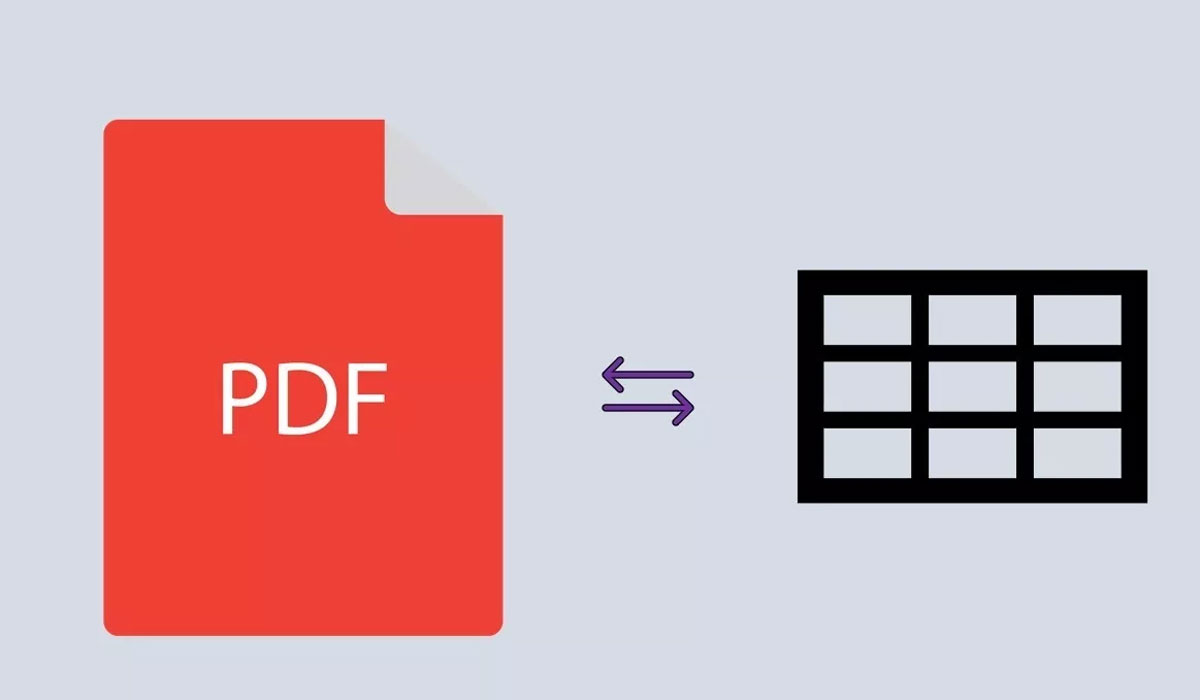How Is It Possible To Easily And Straightforwardly Extract A Table From PDF?
In Recent Years, The PDF Format Has Become A Safe And Easy Standard For Document Sharing. One Of The Features Of Such Files Is The Preservation Of Templates And Table Details So That They Are Displayed The Same Way On Different Devices.
Extract A Table, But creating a Table from PDF can sometimes be a hassle and confuse users. Is there an easy way to do this?
There are several ways to extract a table from PDF, saving time and eliminating the need for users to rebuild tables and enter information.
But if it is impossible to transfer tables to other files with the ability to copy and paste, how can you make a similar instance without confusing the data? Here are some short and easy ways to do this.
Use online file converters.
The fastest way to separate a table from PDF is to convert PDF to any format with the help of online file converter tools. There are several services available for Excel output of files, the most popular of which are comet does and Smallpdf.
Of course, most free titles offer only basic features to users, and to use all of their features, you must purchase a subscription fee; However, the available features can meet the needs of a wide range of users.
To start the process of converting PDF to Excel, visit the Smallpdf site.
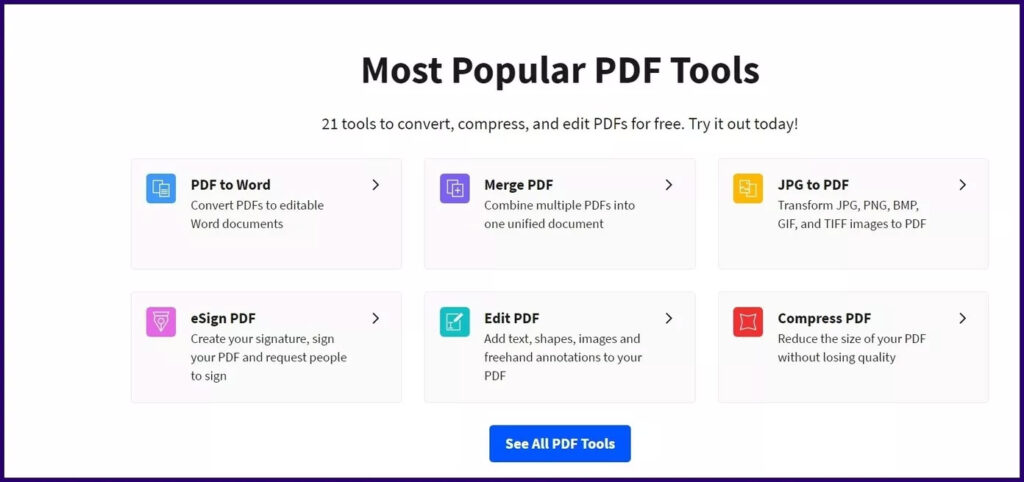
Click the See All PDF Tools button and then select PDF to Excel from the new menu.
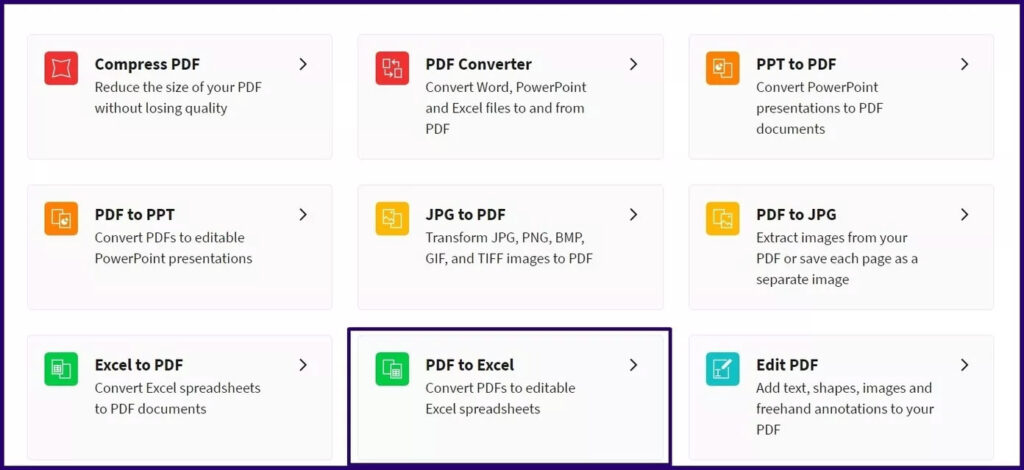
Use the drag & drop feature to move your file to the browser screen to begin the upload process.
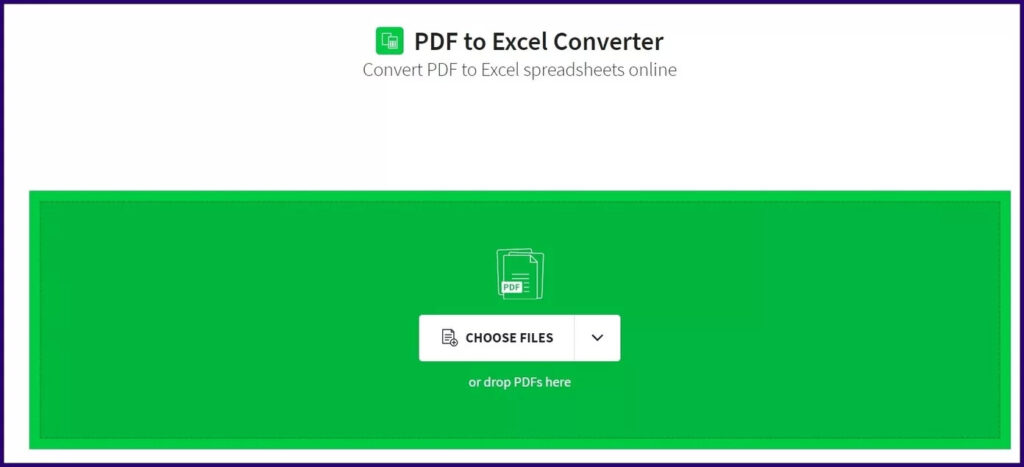
Once the file upload process is complete, click the Convert to Excel button.

You can now download your output Excel file by clicking the Download button.
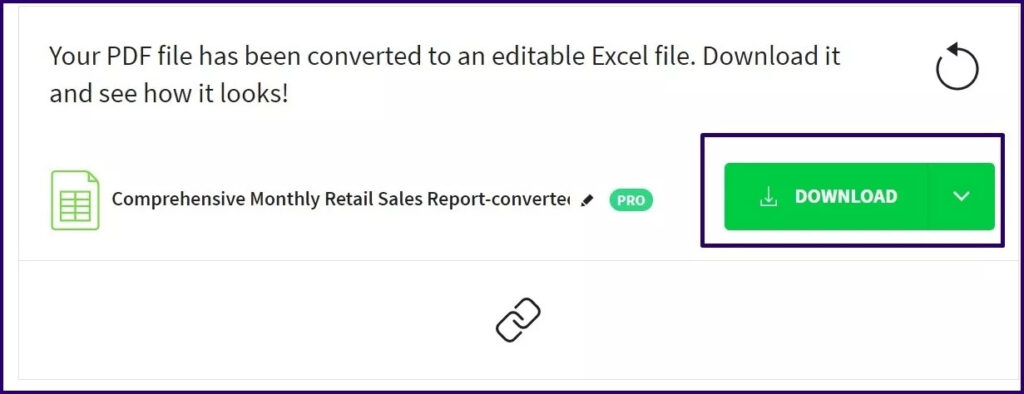
Open the downloaded file to make sure the tables are converted to the new format correctly.
Use Microsoft Power BI
Power BI software, developed and published by Microsoft, is another good option for extracting tables from PDF. The in-app Power Query feature allows users to extract their desired details from files.
Of course, users must have an Office 365 subscription or purchase the software package separately. It should be noted that the free trial version of the program also includes this feature and can be used as a temporary tool.
To get started, download and install the Power BI program from the official Microsoft website. You can also use the unofficial and cracked version.
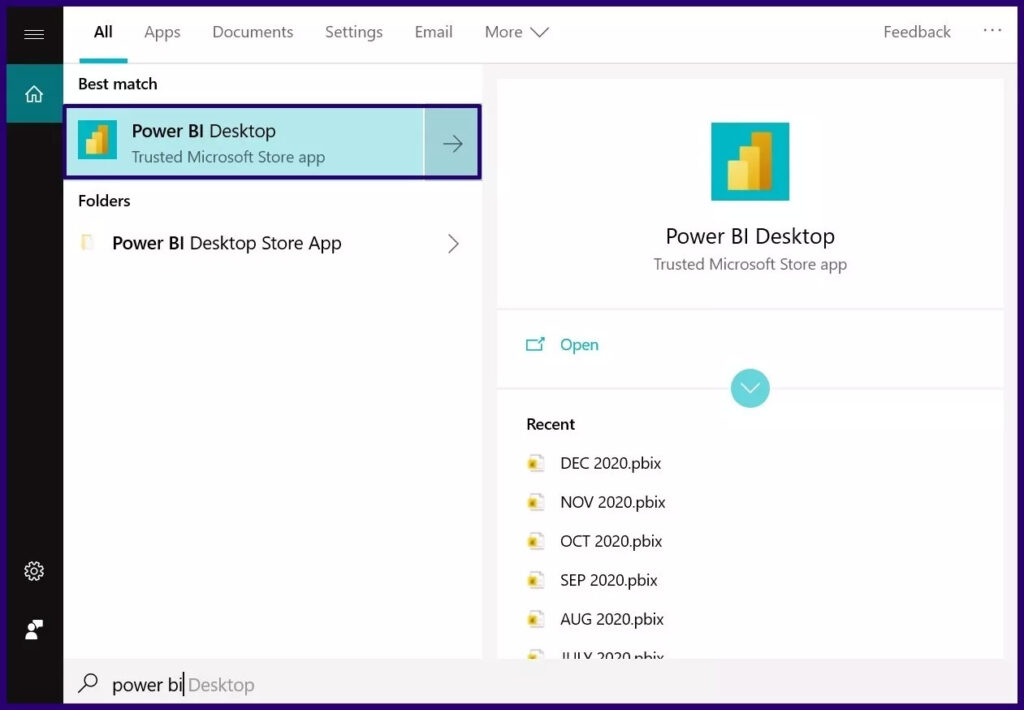
After installation, click on the program icon, or after opening the Start menu, enter the phrase Power BI in the search bar to display its icon. Then on the Software Home screen, click Get Data.
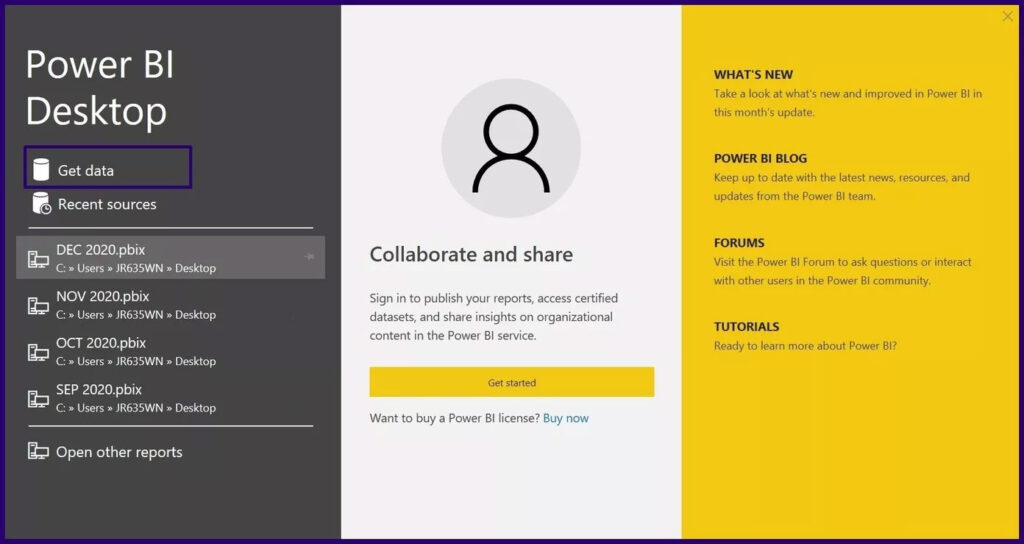
Click on the File section and then select the PDF option.

Now click on the Connect button to select the location of the PDF file on your device memory.

Please navigate to the location where the PDF file is located and after selecting it, click Open.

After the selected file is entered into the Power BI environment, you can see the number of tables and their pages in the Navigator section. Select the table you want to load.
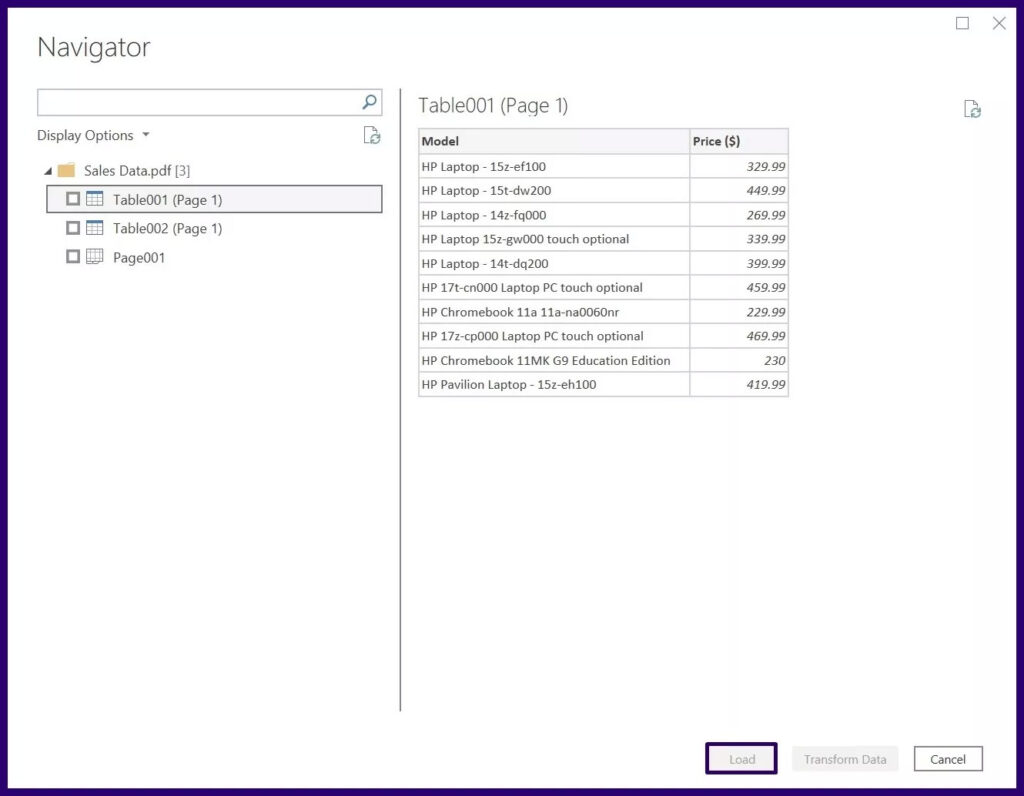
Now press the Load key to move the table to the software environment.
Use Microsoft Excel
Excel software from the Microsoft Office suite is another tool that provides users with the ability to extract tables from PDF and uses the Power Query feature like Power BI.
Of course, this feature can only be seen in Excel 2016 and newer versions and did not exist in previous programs. To start, open Excel and click on the Data option in the top bar on the main page.
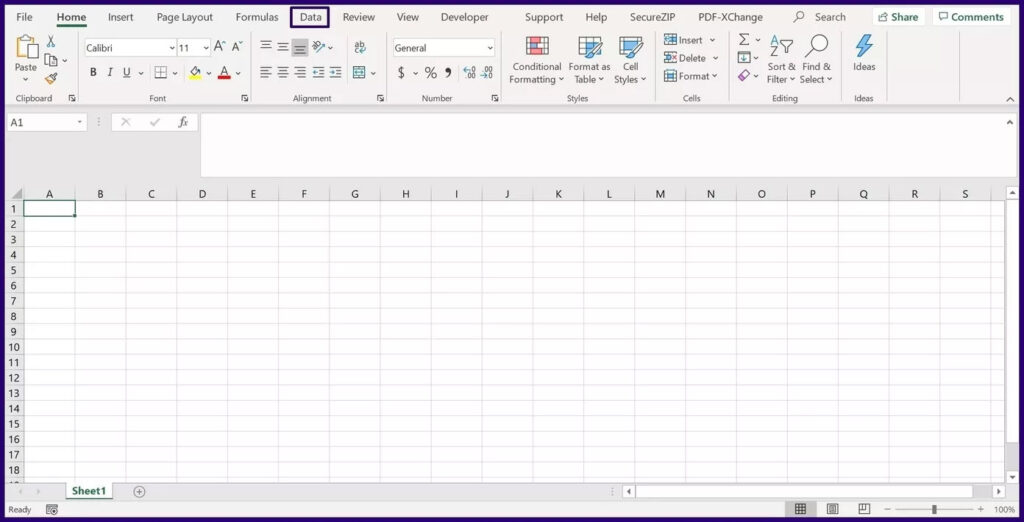
In the said panel, click on the Get Data button to display the drop-down panel. Go to From File and then select From PDF.
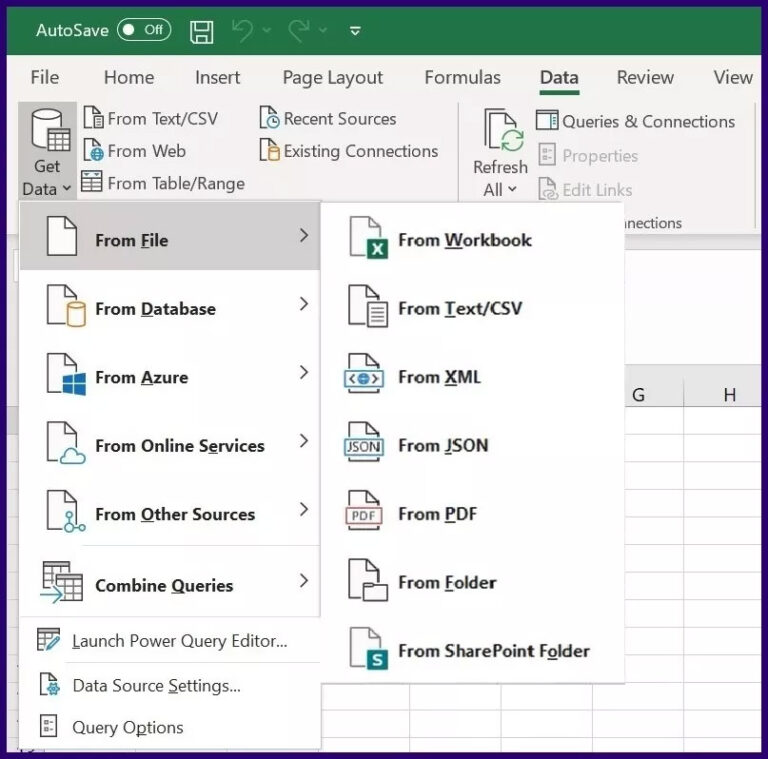
Would you please navigate to the desired PDF file and select it? Finally, press the Open key.

Once the PDF file is imported into Excel, you will see a list of tables and pages such as Power BI software. You can select the table you want in the Navigator menu and click the Load button to import it into Excel.
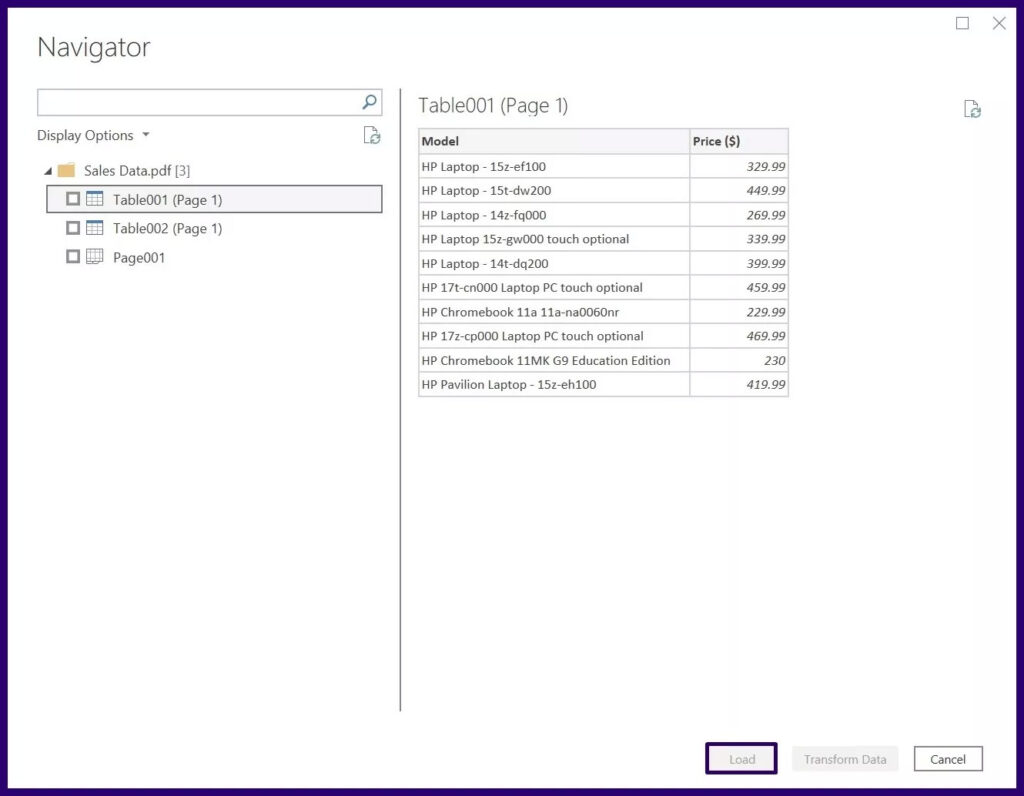
If you are using a version of Excel 2016 or later but can not find the options mentioned in the Data panel, you must install the Power Query feature separately. To get started, go to the official page of the software package on the Microsoft site and then select the desired language for the plugin. Finally, click on the Download button.

Select the desired version of the plugin. Note that the 32-bit and 64-bit versions can be downloaded separately, and select the desired file according to your Windows. After selecting the option, click the Next button to start the download process.
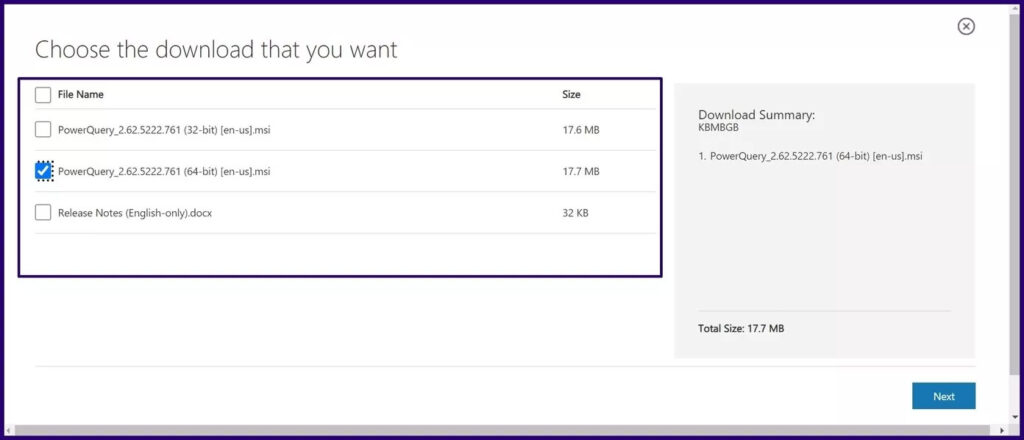
After the download process is complete, click on the said file to start the installation process. Finally, you can see the options related to Power Query in the Data panel in Excel.
Use Adobe Acrobat Pro DC
Adobe Acrobat software is one of the best tools for viewing PDF files; But the Pro DC version also gives users more capabilities, and converting files to other formats, including Excel, is one of them. The Pro version of the program can be used online or downloaded; Although the online version requires a legal purchase of the program license, the offline version can also be installed in a cracked form.
Web-version of Adobe Acrobat Pro DC
First, visit its official website to extract a table from PDF using the web version of Adobe Acrobat Pro. Click Convert in the top menu of the program.
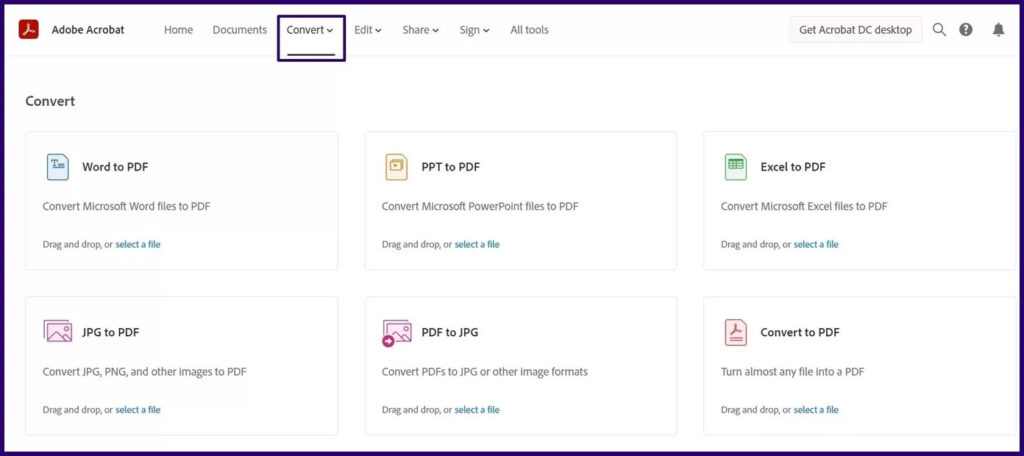
Would you please scroll down to see the PDF to Excel option and click on it?
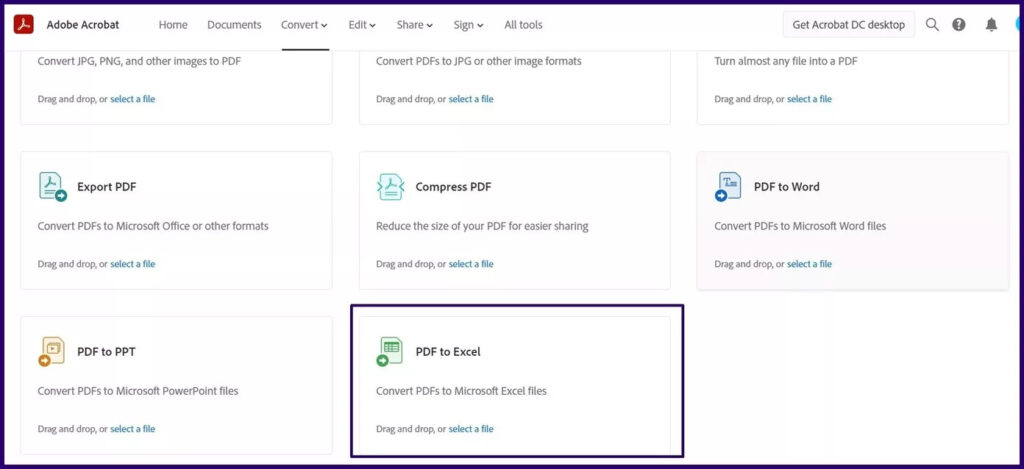
On the new page, drag and drop the desired file to the browser page with the ability to drag and drop.
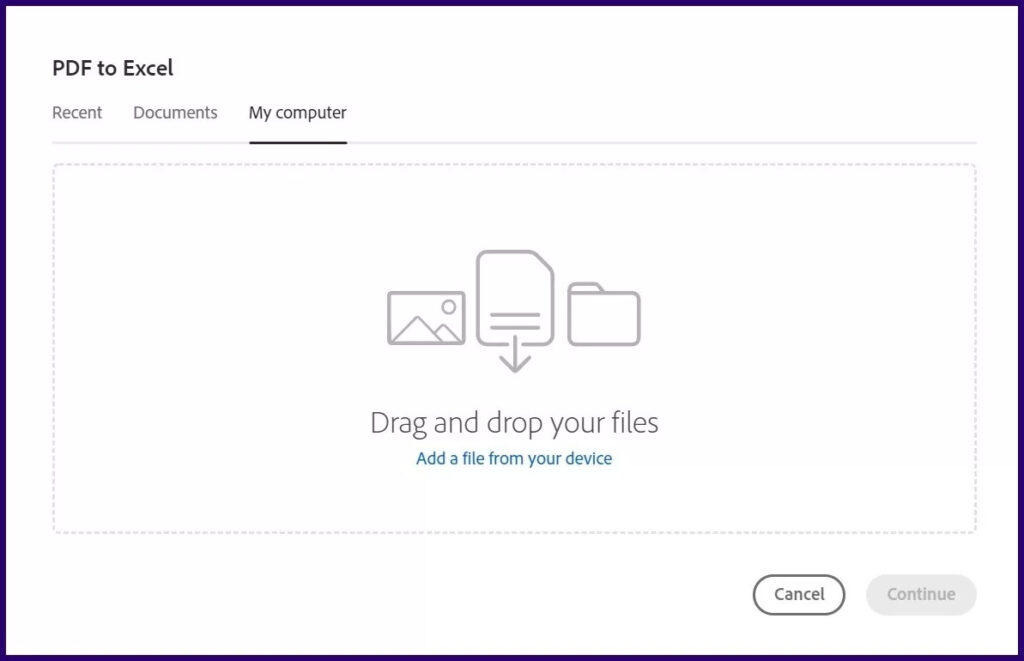
Once the file upload is complete, click the Export to XLSX button.
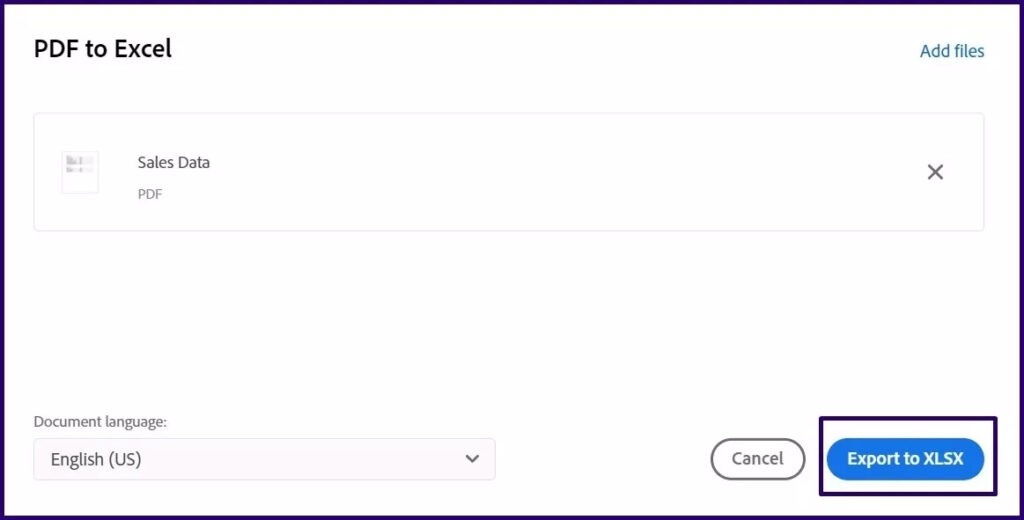
You can now save the offline version of the new Excel file to your device by selecting the Download option at the top of the page.
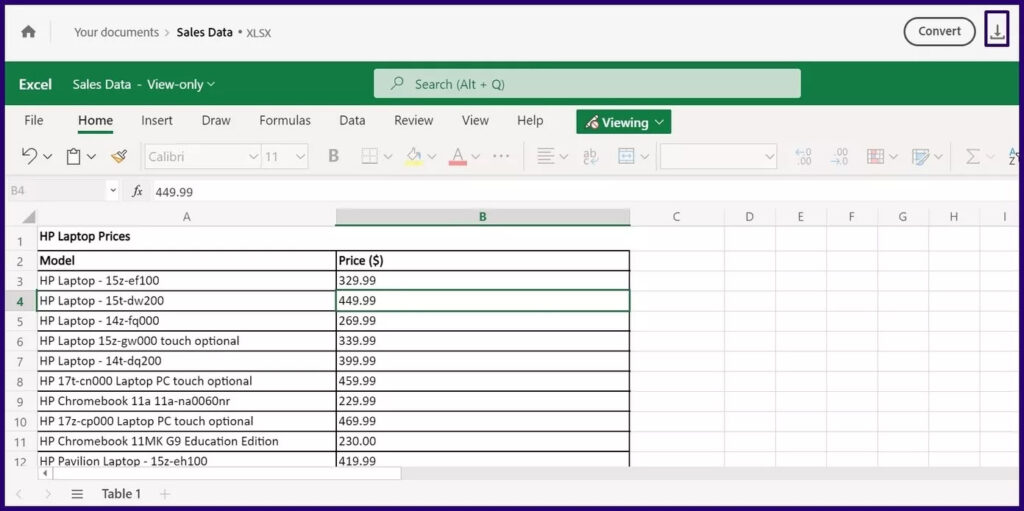
The desktop version of Adobe Acrobat Pro DC
As mentioned, the desktop version of Adobe Acrobat Pro is a better option for users who do not have an Adobe account and want to use the free cracked version.
To get started, click on the program icon or enter its name in the Start menu’s search bar to display the software icon. Then on the main page, click Open a File.
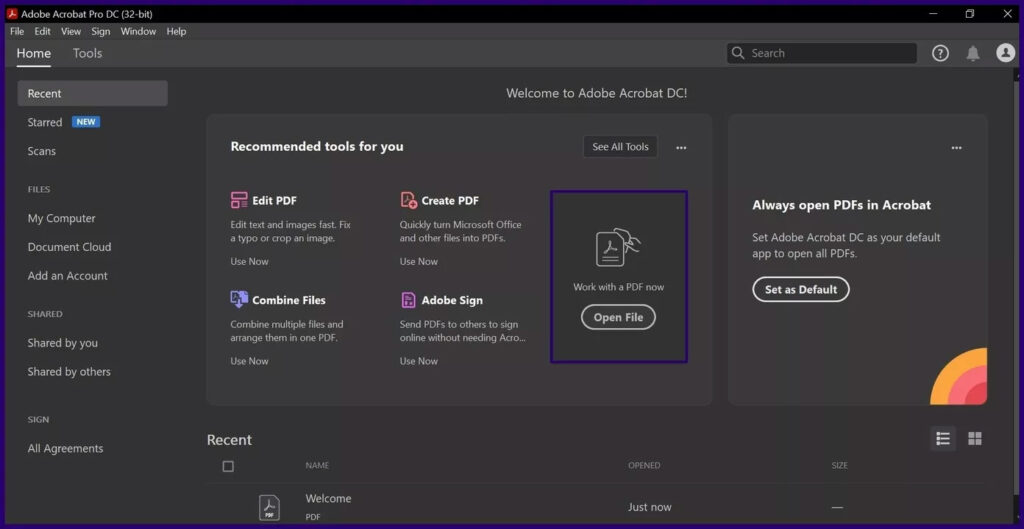
Go to the location of the file and after selecting it, press the Open key.
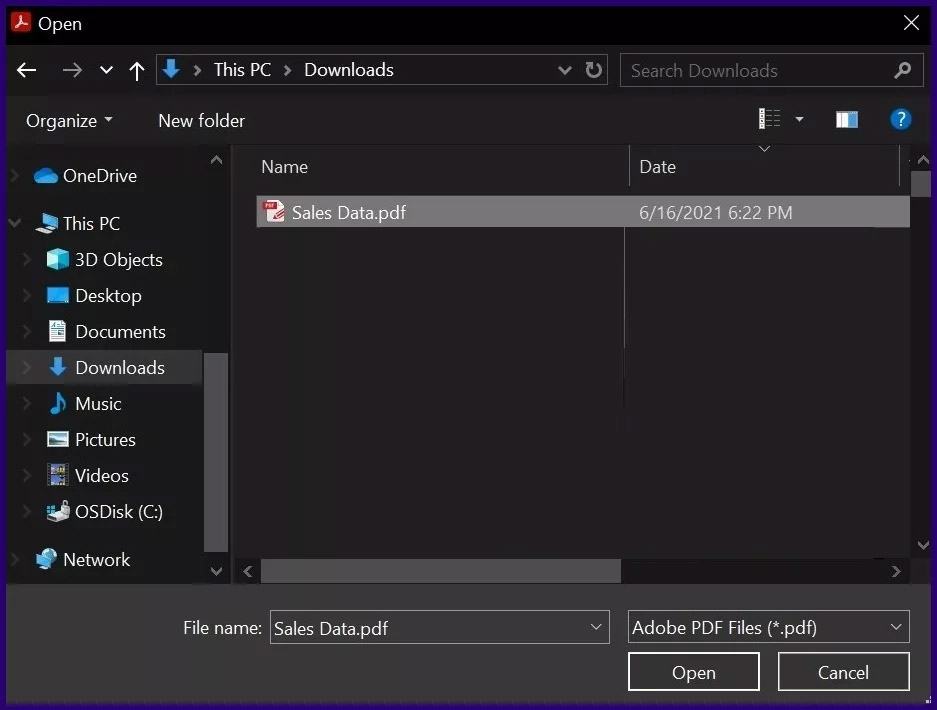
After opening the file in the program environment, using the mouse pointer, and holding the left click, select the table and its contents—Right-click on the selected area and select Export Selection As.
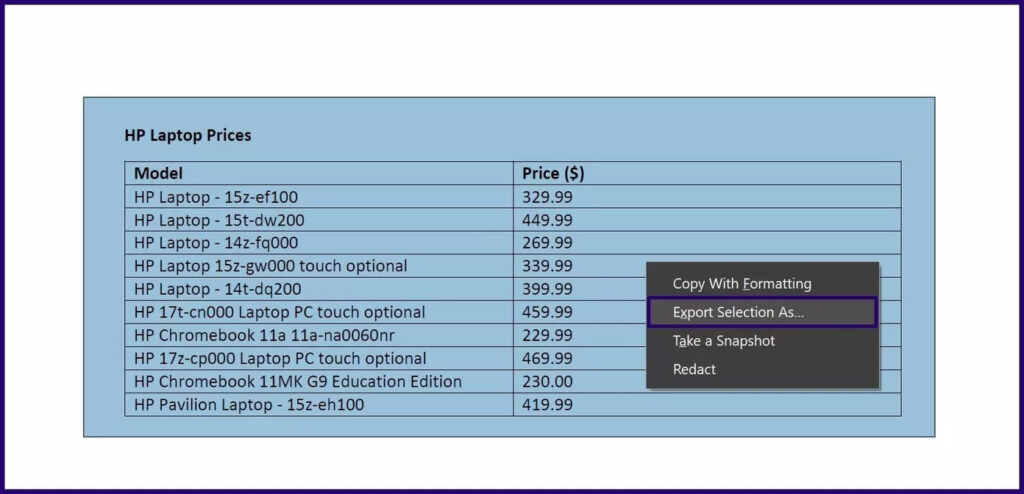
In the file save window, enter your desired name and specify the desired format for receiving the output file.
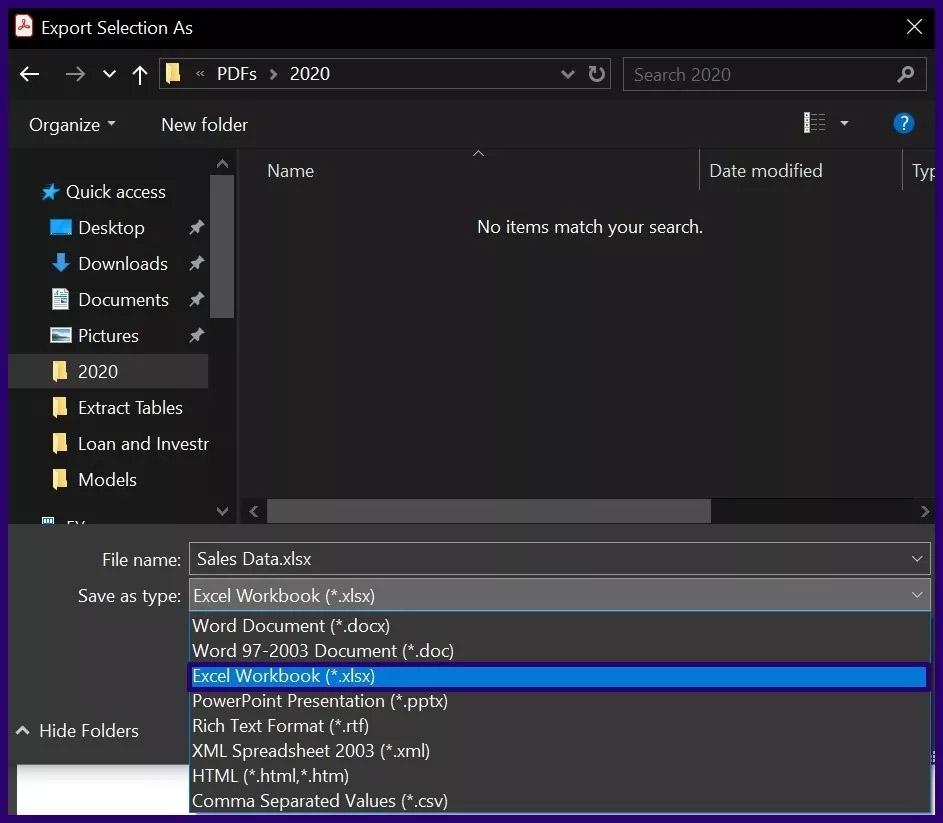
The selected table can now be used as a file in a new format.
